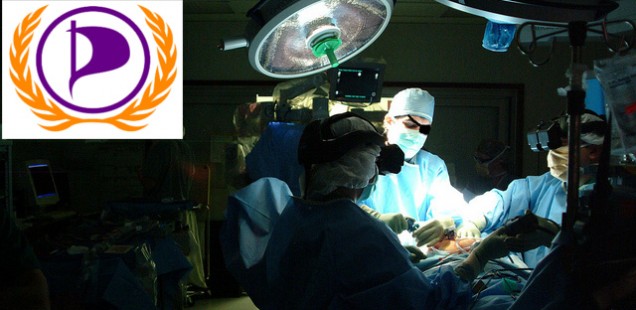This is our Last Chance to Reform PPI | PirateTimes

This is our Last Chance to Reform PPI
This post is also available in: Spanish
This guest post is an opinion article and reflects the author’s ideas.
—-
The upcoming online General Assembly (due for March 14) is in all likelihood the last chance we have to reform Pirate Parties International. We must take this opportunity to entirely overhaul the organisation and leave the negative culture of blame, misrepresentation, political intrigue and general disruption behind us.
Basic situation
There have been several problems with PPI over the years, the most pertinent are:
- unclear direction and purpose
- a consistently unstable governance model
- finances have been mismanaged and some funds potentially lost due to poor oversight
- unclear methods of communication (leading to collaboration between parties outside PPI organization)
- significant distrust of the board and the way in which General Assemblies have been run and managed.
Almost all of the identified problems with PPI are structural. The statutes are poorly written, and any attempt to modify them is stifled by the statutes themselves or by how the General Assemblies have been arranged (stifling any ability to rationally consider reforms). The resulting organisation is one where politicking, in-fighting and slow and questionable bureaucracy reign supreme and actual collaboration is stifled.
We need to start fresh, and we need to start now, otherwise many parties are going to leave PPI and look for a better alternative. It goes without saying that repairing PPI is the least disruptive move we can undertake.
We need an organisation that is oriented towards collaboration instead of representation.
The current model of PPI creates the organization as a “king of kings”. The board of seven members is elected by delegates from each pirate party. The elected board is then expected to represent the diverse objectives of the organisation while simultaneously representing the diverse interests of the parties. Minimal structure has been developed to cope with such a large variety of responsibilities, while at the same time there has never been a strong appetite from the member parties to be delegating such responsibilities in the first place.
Proposed solution
We need to consider to rewrite the statutes, basing it on the principle of building an organisation truly for the purpose of collaboration. In rough terms, I propose the abolition of the current statutes in their entirety, and replacing it with the following:
- Both the board and General Assembly is replaced by a Steering Committee made up of delegates from each member in order to handle issues such as membership and the creation of committees.
- One statutory objective along the lines of: to promote and foster cooperation between Pirate Parties, and other interested parties, internationally.
- All other objectives are determined by the members, and committees are created in order to pursue those objectives (for instance, a committee to stop TTIP, or to explore different party’s policies, or WIPO membership)
- An administrative board would be created made of a subset of delegates of the Steering Committee (or another mechanism if so desired) in order to manage the processes of creating and announcing new committees, announcing meetings, etc.
- The statutes would provide the structure for decision-making at its core without forcing any particular direction. It would define those committees that would be permanent (ie, Steering Committee and perhaps the Treasury Committee), the mechanisms for forming other committees, base admission requirements for members, necessary majorities, definitions and electoral processes that can be used, etc. The specifics will be worked on as part of the drafting process.
The proposal implies that such a Steering Committee would meet when it is necessary, and by the means necessary for the issue at hand. For many issues, such as admitting new members, this could be undertaken through an online vote. More detailed discussions, such as perhaps a procedure for handling new membership requirements, might require a meeting that culminates in an online vote toward a motion.
I envisage that conferences (which I strongly believe should still occur) should be handled by a committee specifically for that purpose, with those powers delegated by the Steering Committee or as an initiative of a member party.
The point is to provide the minimalism and flexibility necessary to actually face the issues we, as a democratic group, determine worthy of attention for our organisation. We don’t need 40 prescribed objectives and a board made of distant and out-of-touch bureaucrats to represent us. We can and should represent ourselves, and take responsibility for our collective international agenda.
Committees on issues unrelated to the statutes could be formed by any member who deems the existence of the committee necessary, getting rid of the bureaucratic bottleneck inherent to many statutory organisations. Committees can then be formed on an ad-hoc basis to solve a problem with interested participants coming and going as necessary, maximising their utility and minimising the churn.
The model I have proposed would, in my opinion, promote significantly stronger collaboration on issues, particularly around resource management. We’ve all faced deficits in our parties of volunteers on major areas such as website development, backend management, electoral material design, and other material issues. PPI in its current state can do nothing to solve these issues, yet these are the more pertinent issues facing us. My proposed structure lowers the barrier to organise cross-national resource management, and it also promotes a positive culture of working together. This is opposed to the negative culture that an overarching bureaucracy often provides.
Issues that are currently part of the PPI remit, that would still be needed whilst going forward, (such as the assistance in creation of new parties) these could and should be handled by a committee created for that very purpose. This allows us to democratically spread the load between our respective parties without the bottleneck we risk of a potentially overworked and under-enthused board.
The main argument I heard, that tries to justify the current model of PPI, is that we need it for representation in the international arena. My response: if we can’t even sort out these coordination issues, membership of WTO or WIPO become irrelevant because as an international movement we have not even agreed upon what such a representative would do (currently we don’t even have a reliable mechanism to democratically resolve this issue).
Moving forward
PPAU will actively seek input on a material draft proposal along the lines specified above as soon as possible. We are very excited to receive all your input and feedback on this proposal. We have three weeks to develop the base proposal for discussion, and another four weeks to do the necessary amendments. We expect there to be a variety of opinions, as is healthy and natural, and look forward to coming to as many compromises as necessary to move forward as a movement.
I think that this mature and experienced Pirate movement, now almost a decade old, will decide that we want to let go of the rushed messy organisation that a bunch of enthusiastic yet perhaps naive group of Pirates made when first formulating PPI, and build something better.
This online general assembly will give us an unprecedented opportunity to be equally represented and carefully consider the proposals for a reform. Let’s accept our mistakes, see the current model for what it is, and do what Pirates are best at:
innovate, and enthusiastically rebuild, in order to change the world for the better.
This is a guest post:
Brendan Molloy is the President of Pirate Party Australia. He is an information
freedom activist, and currently resides in Sweden.
Featured image: Modified from CC-BY, Army Medicine
About
All content is CC-BY if not mentioned otherwise. Please link back to us if using content.












tree
tree
Andrew “K`Tetch” Norton
Ivan Voras
Brendan Molloy